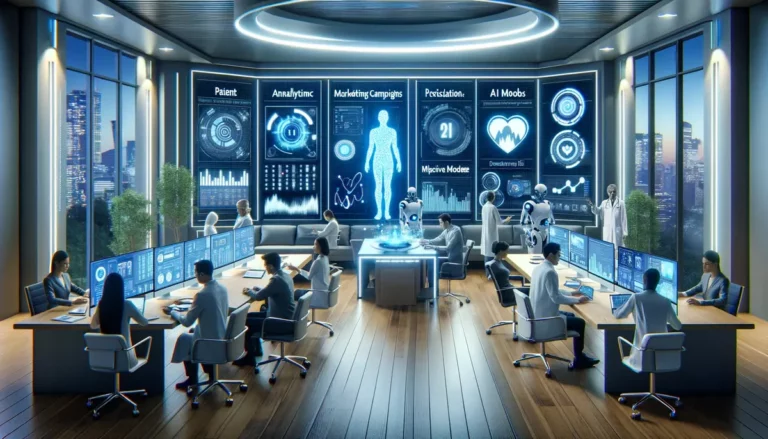In the dynamic realm of engineering, Artificial Intelligence (AI) stands as a pivotal force, revolutionizing problem-solving and system optimization. This field encompasses a broad spectrum of AI-driven techniques and algorithms dedicated to addressing intricate engineering challenges and elevating system performance. From optimizing manufacturing workflows and pioneering product designs to refining human-machine interactions through natural language processing, AI’s role is transformative and far-reaching.
Read also: Elevate Your Real Estate Game with AI Chatbots
Emerging Horizons in AI
AI’s journey has been marked by significant strides, evolving through relentless innovation and research. Its applications span diverse sectors including healthcare, finance, manufacturing, and transportation. Notably, the engineering domain has witnessed a surge in AI adoption, fostering novel technologies, system enhancements, and complex problem resolution across various industries. The potential that AI holds in engineering continues to burgeon, fueled by technological advancements.
Core Insights and AI’s Impact
AI is instrumental in enhancing efficiency, cost-effectiveness, and uncovering new insights to refine systems and processes. Its integration leads to notable improvements in manufacturing downtime, process efficiency, and overall safety across multiple applications.
- Robotics: A robust facet of AI in engineering, robotics leverages AI for diverse tasks like manufacturing, inspection, and maintenance. AI empowers robots to coexist and cooperate with humans in various industrial environments.
- Manufacturing: Here, AI plays a crucial role in amplifying production process efficiency, bolstering quality control, and curbing expenses. Engineers utilize AI for analyzing production data, detecting trends, and honing manufacturing efficiency.
- Logistics and Supply Chain Management (SCM): AI optimizes transportation routes, forecasts demand, and streamlines inventory management. By analyzing vast data sources, AI aids in predicting delays and optimizing logistic strategies.
- Autonomous Systems: AI’s prowess is evident in developing self-governing vehicles, robots, and even spacecraft. These systems navigate, make decisions, and adapt to evolving conditions autonomously, enhancing safety and efficiency.
- Civil Engineering: AI optimizes the design and construction of infrastructures like buildings and bridges. Utilizing data from simulations and sensors, AI assists in crafting more effective design strategies.
- Aerospace Engineering: In aerospace, AI refines aircraft and spacecraft design and functionality. It plays a pivotal role in controlling autonomous aircraft and improving their aerodynamic and structural qualities.
- Energy Sector: AI augments power plant performance, anticipates equipment failures, and manages power grids. Through predictive analysis, AI aids in preemptive maintenance and demand forecasting.
- Chemical Engineering: AI optimizes chemical processes, enhancing the efficiency and safety of refining and petrochemical manufacturing.
- Environmental Engineering: AI is instrumental in enhancing the efficiency of systems like water treatment facilities and predicting environmental hazards.
AI in Engineering: The Benefits
AI’s capacity to process extensive data sets and identify patterns, otherwise elusive to human analysis, stands out as a cardinal advantage. Additionally, its predictive capabilities enable engineers to foresee equipment malfunctions and strategize maintenance, ensuring system longevity and reliability.
Conclusion
As we delve into the engineering applications of AI, its significance becomes increasingly apparent. AI’s ability to process vast data, predict outcomes, and emulate human intelligence has catalyzed its adoption across various sectors like robotics, autonomous systems, maintenance, and more. As AI continues to evolve, its potential applications in engineering are poised to expand further, promising more efficient, cost-effective, and sustainable solutions. The future of engineering, intertwined with AI, is poised for groundbreaking advancements.







